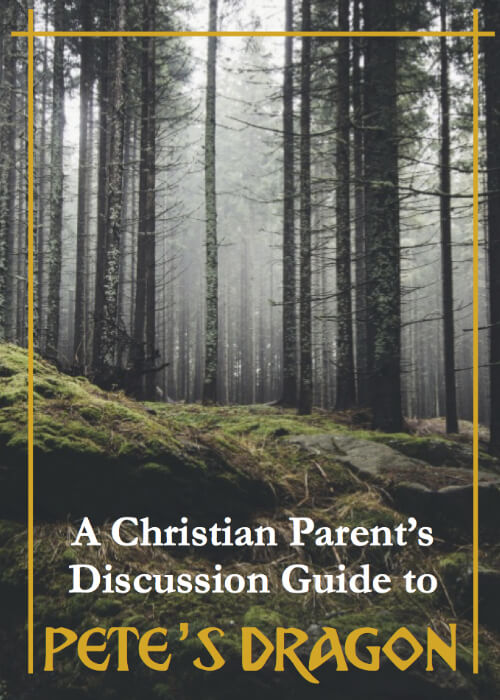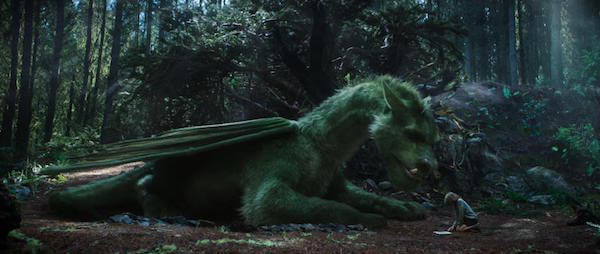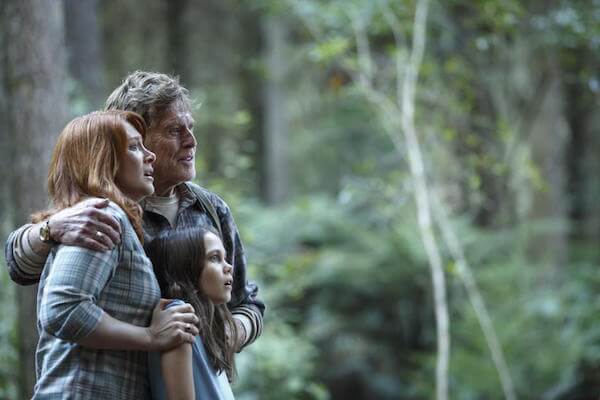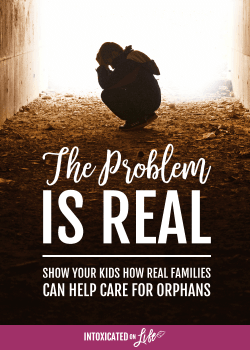Go north, go north with wings on your feet
North with the wind, where the three rivers meet
Look all around you and see
Deep in the forest, there dragons will be.
Oxford scholar C.S. Lewis remarked about how in his youth he developed an intense obsession with “northernness”—the mysterious northern lands of Britain and Scandinavia and their dark Norse myths that represented for him the embodiment of an unreachable, imaginary land. He recalls how, at certain points in his life, he would be shot through with “the stab, the pang, the inconsolable longing” for another world.
This is far more than just an escape into childhood fantasy. It is something we’ve all experienced: an echo of heaven in the natural world, a sort of spiritual nostalgia, an unbearable pleasure, a homesickness to return to a far country from which we’ve never been. Unconsciously chasing echoes of that far country, it eventually led Lewis to Christ.
He called this longing by many names, but in his autobiography he simply called it joy—and it all began with an arrow shot from the north.
Disney’s Pete’s Dragon (2016)
This is how Disney’s new film, Pete’s Dragon, begins (and ends): a fascination with the northern mountains where the dragons live. It is said that every once in a while a dragon loses his family and wanders south into the deep forests of the Pacific Northwest—and if you’re lucky, you just might see one.
Meacham (Robert Redford) is the only one in his small logging community to have seen a dragon in the woods. When not embellishing the tall tale for children, in quiet moments of reflection he describes the fear and wonder of the experience, the “magic” of seeing the creature. And indeed, that’s exactly the feeling the movie captures for audiences: magic.
Plot Summary: Pete’s family is involved in a terrible car accident on a remote road. Four-year-old Pete survives the accident, but his parents do not, leaving Pete stranded in the deep woods. Soon after the accident, Pete meets an enormous dragon he names Elliot. Six years pass, and Pete is still living in the woods with Elliot, the two having forged a deep bond of friendship. Trouble ensues when Pete and Elliot begin to interact with local loggers, not only exposing Pete to the civilized world but exposing Elliot’s existence to the small town.
Nothing Like the Old Movie
If you’re like me, you grew up watching the 1977 original film by the same name. If you’re looking for a “remake” of the film, don’t look for it here. Aside from the obvious similarities of Elliot, a green dragon (who can become invisible), taking care of an orphaned boy named Pete, the parallels between the two films are minimal. You’ll hear no musical throwbacks to the original musical score, no recognizable antagonists, and none of the same slapstick comedy.
Safe for Kids
We took our twin 5-year-olds to see the film and thought it was very appropriate for them.
- Aside from the obvious intensity of seeing a large fire-breathing dragon, the film is relatively tame and violence is minimal. Some kids might find those scenes unsettling or even sad.
- There was no profanity.
- It is implied that the female lead, a park ranger named Grace (Bryce Howard) is living with her fiancé Jack (Wes Bentley), but there are no romantic interactions between them.
Discussion Questions for Kids
Rather than just passively watching films, discussion questions help us to engage the minds of our kids after the movie is over. You might choose to use all of these questions, or just one or two of them.
For Younger Kids:
- How do you think Pete felt after the car accident? Talk to your kids about how God designed us to be raised in a loving family, but there are times when bad things happen, leaving kids orphaned, without parents. Talk about how wonderful it is that we can adopt orphans to give them loving homes, just like Jack and Grace do for Pete at the end of the film.
- Do you remember when Pete was running through the woods, jumped off a high cliff, and was caught on Elliot’s back? Why wasn’t he scared to do that? Pete trusted Elliot completely. There wasn’t a doubt in his mind that Elliot would catch him. Talk to your kids about what trust is, that this is how Christ expects us to treat Him: with childlike faith.
- Why did Pete howl when he was sad or afraid? Having lived around the animals for 6 years, this was what he had learned to do. We tend to follow the examples of those around us, which is why it is important to surround ourselves with good influences.
- Why did Gavin (Karl Urban) want to capture Elliot? He wanted to be famous. The movie shows us things like friendship and love are more important than being famous.
For Pre-Teens and Teens:
- Meacham reminds his daughter that just because you’ve never seen something doesn’t mean it doesn’t exist. Can you think of any real-life examples? An obvious example is God: most people on Earth have never seen God, but Hebrews 11:1 says that’s what faith is: it is the assurance of things we hope for, the conviction of things not seen. Another example might be things that people have seen in the past: angelic appearances, miracles, famous Bible characters, etc.
- Do you think the film does a good job balancing the importance of protecting our environment and using natural resources for our good? Allow your child to respond to this. In some ways the engagement of a park ranger and a manager of the logging company is reflective of the importance of both needs: caring for the Lord’s world and using the Lord’s resources. Little conflict is seen in the movie between these often-competing desires.
- Pete’s Dragon is a modern day fairytale. Some people object to fairytales because they think it promotes “escapism”—retreating into a world of wish-fulfillment and not facing the problems of the real world. Do you think this is true? Allow your child to respond to this. Certainly anyone can use stories in a way that leads to unhealthy escapism, but C.S. Lewis had a different view of fairytales. Have your child read this excerpt below and respond to it.
C.S. Lewis on Fairytales and Escapism
Do fairy tales teach children to retreat into a world of wish-fulfillment—‘fantasy’ in the technical psychological sense of the word—instead of facing the problems of the real world? Now it is here that the problem becomes subtle.
Let us again lay the fairy tale side by side with the school story or any other story which is labeled a ‘Boy’s Book’ or a ‘Girl’s Book’, as distinct from a ‘Children’s Book.’ There is no doubt that both arouse, and imaginatively satisfy, wishes. We long to go through the looking glass, to reach fairy land. We also long to be the immensely popular and successful schoolboy or schoolgirl, or the lucky boy or girl who discovers the spy’s plot or rides the horse that none of the cowboys can manage.
But the two longings are very different. The second, especially when directed on something so close as school life, is ravenous and deadly serious. Its fulfillment on the level of imagination is in very truth compensatory: we run to it from the disappointments and humiliations of the real world: it sends us back to the real world undividedly discontented. For it is all flattery to the ego. The pleasure consists in picturing oneself the object of admiration.
The other longing, that for fairy land, is very different. In a sense a child does not long for fairy land as a boy longs to be the hero of the first eleven. Does anyone suppose that he really and prosaically longs for all the dangers and discomforts of a fairy tale?—really wants dragons in contemporary England? It is not so. It would be much truer to say that fairy land arouses a longing for he knows not what. It stirs and troubles him (to his life-long enrichment) with the dim sense of something beyond his reach and, far from dulling or emptying the actual world, gives it a new dimension of depth. He does not despise real woods because he has read of enchanted woods: the reading makes all real woods a little enchanted. This is a special kind of longing.
The boy reading the school story of the type I have in mind desires success and is unhappy (once the book is over) because he can’t get it: the boy reading the fairy tale desires and is happy in the very fact of desiring. For his mind has not been concentrated on himself, as it often is in the more realistic story.
– C.S. Lewis, “On Three Ways of Writing for Children”













I always tend to shy away from stories with dragons. Not for the fairy tale aspect, but rather for the inclusion of magic. There is so much in the bible that renounces magic that I never wanted to create an appetite in my children for it. It is interesting to see what other Christian parents think on the topic of fairy tales in general.
Interesting thought, Margaret. So, in your opinion, and inclusion of magic is off limits? So this would include things like the Chronicles of Narnia or the Lord of the Rings?
Yes, for me the inclusion of magic in a story is a red flag. I have read both the Chronicles of Narnia and the Lord of the Rings, prior to coming to this conviction and appreciate the quality of writing and the struggle between good and evil. My concern lies more in portraying magic as an appealing activity. Creating an appetite for something that is clearly portrayed as evil in the Bible can lead to temptations down the road for our children. I struggled with those temptations myself growing up. I feel that we have to be cautious in what we read, just as in what we do, holding everything up to the lens of the Bible to discern what deserves our time and attention. Not always easy to figure out, I know.
I don’t suppose I share your same concerns. The Bible certainly speaks against various forms of witchcraft, summoning dark powers and such, but in many books, the “magic” portrayed isn’t like witchcraft at all. The “magic” portrayed is simply part of the natural order of the universe in which the book takes place. It’s like how animals can talk in fairy tales: they don’t talk because they are possessed by dark powers but simply because that’s what animals in that universe can do. Similarly, Aslan in the Chronicles of Narnia simply utilizes power essential to who is as the maker of that world.
I understand this may not be all that convincing to you, but I thought I would at least let you know my thought processes. Rest assured, Pete’s Dragon doesn’t really capitalize on “magic” in any of these senses. “Magic” is more of a term to describe the breathtaking brush with something amazing and otherworldly.
I appreciate this discussion. I’ve been wanting to bounce around thoughts with someone but so many people are defensive when it comes to media discernment that it’s a sensitive subject. I used to say the same things you are saying about magic, Luke. It’s just a part of the world in these stories. But now I think differently. Magic is still “other” in many of these stories. Take Lord of the Rings, for example. Even the fictional characters in that story are taken by the mystery of magic, because it’s not really part of their world in the same sense as gravity or air. It is not using the natural resources of the world to manipulate other resources, as science does. Instead, it’s using some other-worldly force that is never really explained. It’s just “magic”. Which is very similar to how real magic is PERCEIVED in our world, even if those who actually practice it have more knowledge of the spiritual forces involved. What do you think?
Yes and no. While I’m not an expert of Tolkien’s work, from what I understand of it, magic tends to be portrayed in a negative light when it is used outside of it’s created order (like someone having Sauron’s ring who shouldn’t have it). On the other hand, the world of Middle Earth is much more integrated with what we think of as the “supernatural” realm. The wizards are actually Maiar, lesser immortal spirits that have existed since before the creation of the world who now live in the guise of men. They are on Middle-Earth at the bidding of the gods. The magic they use is not unlike that of the might of angels—they wield a power they are meant to have, and all of Middle-Earth understands that power is theirs by virtue of who they are.
That might be a poor assessment based on a lack of knowledge of the subject, but that’s my perception of Tolkien’s works.
If I understand this rightly, stories that more strongly integrate the natural and supernatural into one daily reality, these are not unlike specific episodes of Israel’s past. Angelic encounters, urim and thummim, staffs turning to snakes, bitter water rites—all these were part of the world of ancient Israel at one point or another. Granted these were powers granted by God, but they were supernatural manifestations living in the natural world that could be enacted by the will of men (or angels). These things were “magic” in a sense, but not at all like the manipulative magic of the necromancers, sorcerers, and diviners—men and women who tried to tap power that wasn’t theirs to take.
Yes, and shouldn’t that disturb us? Being there at the bidding of “the gods”? According to the Bible, the gods of the heathen are devils. Doesn’t this make it worse, not better? Sorcerers are given their power by the kingdom whose king is called by the Bible, “the god of this world”. Demonic forces are a real part of our world, and they give their power to those willing to do what they must to receive it. Doesn’t it seem like we too lightly accept the imaginations of men’s hearts who create worlds without the true God, and replace Him with caricatures? In a similar vein, the only way I would watch a movie about Greek gods, Norse gods, etc. is if it were required for academics or some such. Why would I cheer on a devil? Why would I get in the spirit of rejoicing when a devil overcomes?
In and of itself, it is not a transgression to see or hear any piece of media, but it seems like the legality of it blinds us. That’s what Paul was dealing with in 1 Cor 8-10. First he says that eating in the idol’s temple is nothing. So we can imagine all the people for whom this was a big question rejoicing: “Yay! We can eat in the idol’s temple!” But then in chapter 10 he ends up saying, “Flee idolatry.” No, it wasn’t a sin for Israel to sit down to eat (1Cor 10:7). The real problem was that they rose up to play. Or rather, it is the spirit with which they sat down to eat. Thus, shouldn’t we take the same approach with magic and idolatry? But instead we “play”. We enjoy its portrayal. We “lust after evil things” (1Cor 10:6), tempt Christ (10:9) by saying that it is lawful for us and that we are spiritual or knowledgeable enough that it will not affect us, when instead we should “take heed lest we fall” (10:12). Yes, the context is eating in the idol’s temple, but it is also dealing with things that are not unlawful to do, but for which there are reasons NOT to do. Thus, this can apply to other things (such as media consumption), which is why he spends chapter 9 talking about things that seem unrelated to eating in an idol’s temple, but have one common theme: it is legal for him to do it, but there are reasons for him not to do it.
I understand this is not quite the topic of the post, which I appreciated, but the topic came up, and you seemed willing to talk, so I took the opportunity. Hope you don’t mind. 🙂
1. You said, “Yes, and shouldn’t that disturb us? Being there at the bidding of ‘the gods’? According to the Bible, the gods of the heathen are devils. Doesn’t this make it worse, not better?” By “gods,” I mean the lesser spiritual beings present in The Lord of the Rings, akin to angels, like how Psalm 8 calls angels “gods.” Sorry that wasn’t clearer when I commented.
2. You said, “Doesn’t it seem like we too lightly accept the imaginations of men’s hearts who create worlds without the true God, and replace Him with caricatures?” In one sense, any time you create a fiction story, you are creating a world God didn’t create, even in the best Christian literature. You are posing a scenario that the true God didn’t allow to exist, which would mean we should reject literally all fiction. Is that the direction you pose we go? I guess I’m not following your thoughts here.
3. As for your understanding of 1 Corinthians 8-10, I don’t really take an issue with it. I’m not sure enjoying a piece of fiction is akin to walking into a pagan temple and honoring a pagan god, but I’m sure there are some out there whose imaginations get wrapped up in the fantasy in an idolatrous manner. I think C.S. Lewis’ comments I included at the end of this article speak to this issue. In a sense, the more “real” the fantasy world is (i.e. the more like our own), the more one runs this risk. For Lewis, it was the world of pure fantasy that was so instrumental in drawing him to Christ, which is part of the reason he employs fantasy worlds in his own literature.
That’s a good point about all fiction being something that does not exist. Jesus used parables. It’s something to chew on. But you have to admit that a story that COULD exist within the natural laws of our own world is different than one that could not, however, and the inclusion of magic in such a story is where it’s hard for me to accept. We don’t have to go out on a limb with this and apply it to all fiction. Yes, the story that is more like our own world can be more dangerous and more relevant, but (no disrespect to C. S. Lewis) that argument can go both ways: it can also be more relevant in a good way. I think my children will be far more impacted in the long run by stories of real martyrs than by fictional stories, for example, and even on the level of fiction, I think that they can be more positively impacted by a story that gets right down to their level than one that must use fantasy. Jesus did not feel the need to use fantasy in His parables to enhance His listeners’ hunger for God.
As for 1Cor 8-10, I don’t blame you for not seeing the application, but I don’t think it’s too hard to see. One of Paul’s points was that they were so focused on what was legal that they didn’t see the danger of spiritually partaking of evil. Pagan temples are a piece of fiction, and any Christian knows this intellectually. But if one makes it a point to eat there, the question arises: why? Does he enjoy the food that much? Or is there something else? Maybe the worship is colorful and entertaining and he enjoys that, which would be wrong. Maybe there are scantily clad priestesses which he enjoys, which would be wrong. Maybe in a moment of weakness, because everyone else is doing it, he would give in to pressure to raise a glass in a toast to the false god, which would be wrong. The love of the world prevents the love of the Father. Whether a pagan temple is akin to fiction is not the whole point (though as a source of entertainment and spectacle, it can be similar). The point I was making goes more in the direction of this: that we can approach our entertainment in the same way the Corinthians were approaching their big dilemma: whether it was okay to eat in the idol’s temple. And that some of the same reasoning that Paul applies to that question applies to this one, because you don’t have to eat literal food to partake of what the devil want to feed you. You can do that by loving the things of the world.
As far as the gods of Tolkien’s universe, there are most definitely beings that resemble gods more than angels. They continued to create the world. It resembles ancient Greek religion more than Christianity. The Valar helped create parts of the world. Different ones even created different races. Thus, my statement about caricatures of God. The wizards, or Maiar served under these different beings. More info: http://lotr.wikia.com/wiki/Valar
There is something to be said for celebrating what is right before denigrating what is wrong. It just seems to me that we are too free in analogizing away what is wrong.
Thank you for clarifying what you meant about fiction stories. I assumed you weren’t trying to discard all fiction. Knowing that, I can respond to your earlier thought. You said, “Doesn’t it seem like we too lightly accept the imaginations of men’s hearts who create worlds without the true God, and replace Him with caricatures?” Every fiction story would, by definition, not include the true God, since the true God didn’t create or act in that fictional world, but since you think some fiction is clearly okay (like Jesus’ parables), where is the line you would draw?
Is it a story that could be true? I’m not sure that’s correct because even some Biblical parables have elements of total fantasy, like Jotham’s parable of the trees talking and trying to crown a king (Judges 9), or Ezekiel ascribing human emotions to wildlife (Ezekiel 19).
I guess I’m just not so sure about drawing the line where you draw it.
As for true stories, like the stories of martyrs you mentioned, that’s another matter altogether. I don’t have any disagreement with you there. But since the point of this conversation is more comparing one kind of fiction to another, I’d rather focus more on that.
Thanks for the clarification on 1 Corinthians 8-10 as well. Those were the details I was looking for—I wasn’t sure at first which angle you were taking. I generally think the tension between appreciating earthly joys and idolizing them is a tension you find in a lot of life, not just controversies about actual idol temples, so I share your same concerns.
And I think Lewis speaks to this as well when he talks about our longing for God and how we retreat into earthly amusements to fill that longing. In his sermon, The Weight of Glory, Lewis says…
He strikes at the same kind of thing in Mere Christianity…
In other words, there are many pleasures in this world that are designed to be windows through which we see the goodness and glory of God; God fills us with joys as a witness to Him, the author of joy (Acts 14:17), but we tend to turn those joys into idols that eventually betray us.
I would simply say the same thing about all stories, fictional or otherwise. They are enjoyable to read and they bring us pleasure, but if we don’t use them as windows through which we can experience the goodness of God, they can easily become idols.
I know this probably isn’t touching specifically on the controversy about fiction, but I do think it is a general principle that undergirds the discussion.
Thoughts?
That was a really thoughtful reply! Thank you so much. This discussion has been lurking in my emails because I was busy and, admittedly, because I don’t like confrontation. But when I finally read my fears were put to rest. I’ll try to reply to this sometime soon, but I just wanted to let you know that I appreciated your thoughtful reply, since your earlier comments made me afraid this wasn’t a serious discussion to you, just enduring an extremist fanatic or something. God bless!
No problem. Comment when you get some time.
Well said.
Thanks, Shama!
Thanks for the conversation, Luke. I do appreciate your thought processes. I like to see where others are coming from. It is always beneficial to be stimulated to think a concept through and to ponder other viewpoints. You did clarify for me the role that magic plays (or rather doesn’t play) in this film about a dragon. I think I misread that in my first read through your post. Have a blessed day!
C.S. Lewis makes a profound statement, “He does not despise real woods because he has read of enchanted woods”. I would add, a child does not despise dragons because he has seen enchanted dragons. In the Bible, the dragon represents the devil, seeking those he would devour. He would love to capture the hearts of all our children before they even know what happened to them. Respectfully, I must disagree that Pete’s dragon is harmless. Because it is so mild and cute and enchanting is why it is so damaging and deceitful to the minds of children.
I can respect that we should stay away from stories that mess with archtypes (like dragons portrayed as good). It is certainly something to consider. I, on the other hand, just make it a point of conversation, not a reason to stay away from it.
Very thought provoking! I enjoyed reading. What are your thoughts on Harry Potter? As an adult I enjoyed them – I loved the fantasy (really enjoyed the first 1 but not the others). My kids (13 and 11) have shown no interest so I haven’t gone there with them. We certainly discuss what the bible says about witchcraft and magic, Satan posing as an angel of light etc. But just because we talk about that doesn’t make it right either, right! The are elements of witchcraft in many movies. Even Snow White and the Smurfs! I’d like to hear your thoughts. Actually I have more problems with movies that have teenage romance in them. Thanks.
Great question, Tara. Personally, my kids haven’t expressed much of an interest in the books or the movies, so it isn’t something I’ve personally faced, but let me give you some ideas…
First, let’s acknowledge that the major concern Christians ought to have with the stories is their potential to trivialize the biblical commands about witchcraft. There’s really no getting around the fact that the author definitely borrows from the world of the occult.
Second, using Lewis’ advice I posted at the end of this article, we should ask in what sense the world of Harry Potter like a fairy tale and in what sense it is more like reality? Is the Potter universe like the worlds created by Lewis or Tolkien, where the wizardry is more like ancient alchemy and natural abilities, or is it more like the witchcraft condemned in the Scriptures? This is not easy to answer.
– On one hand, the spells in Harry Potter aren’t actual spells. Furthermore, in the Potter universe, spells operate more like science, a means of controlling the physical and spiritual worlds. In the hands of a trained wizard, the magic in those books is as reliable as chemistry and physics, which is very unlike the world of neo-paganism. Also, unlike the occult, Potter magic is an inherited trait, something built into the fabric of who a person is, something part of their DNA.
– On the other hand, the author engaged in extensive research of occult beliefs to provide material for her books. She said approximately one-third of what she has written is based on actual occultism. Furthermore, the world of Potter is not a fantasy world; it is meant to be the same world we live in—or at least that is the way the book is written.
Last, as with anything in culture, we never leave our kids to interpret what they see on their own. Part of what it means to train our kids is training them to look at questionable material with a Scriptural eye. We should teach them what the Bible says about artifacts of our culture, and that includes literature.
With all of these points in mind, I could see why parent would simply choose to steer clear, especially while their kids were young.
I also wouldn’t have a problem with a parent who chose to read the Harry Potter books or watch the Harry Potter movies with their kids. The point of this kind of co-viewing would be to help their kids to see how the the Potter universe is both like and unlike our world, help their kids understand why God condemns cultic practices, and help them to understand that, to the extent Harry Potter reflects those practices, it should be seen as evil.
Similarly, this kind of co-viewing could be used by parents to look at not just Harry Potter as an engaging story but as a cultural phenomenon. What drives the fascinations people have with the books? Kids love to read about children who discover their potential, their power. Kids see a bit of themselves in the characters, who are, after all, very human and very childlike—despite all the magic. People love to escape into another world of fantasy. People are drawn to the “old magic” (i.e. sacrificial love) that is the secret to Harry’s strength in the face of the dark arts. All of this…plus J.K. Rowling is a great storyteller.
Good writing does that: it taps good human desires. As we let our kids get into various kinds of fiction, we should help them see the good desires it draws from us, and point them to the One who can truly satisfy those desires.
Long answer, I know.
Thank you for the time and effort you put into replying. I agree with what you said about co-veiwing and discussion and we do it regularly. You are most articulate with your answers 🙂 Thanks again.